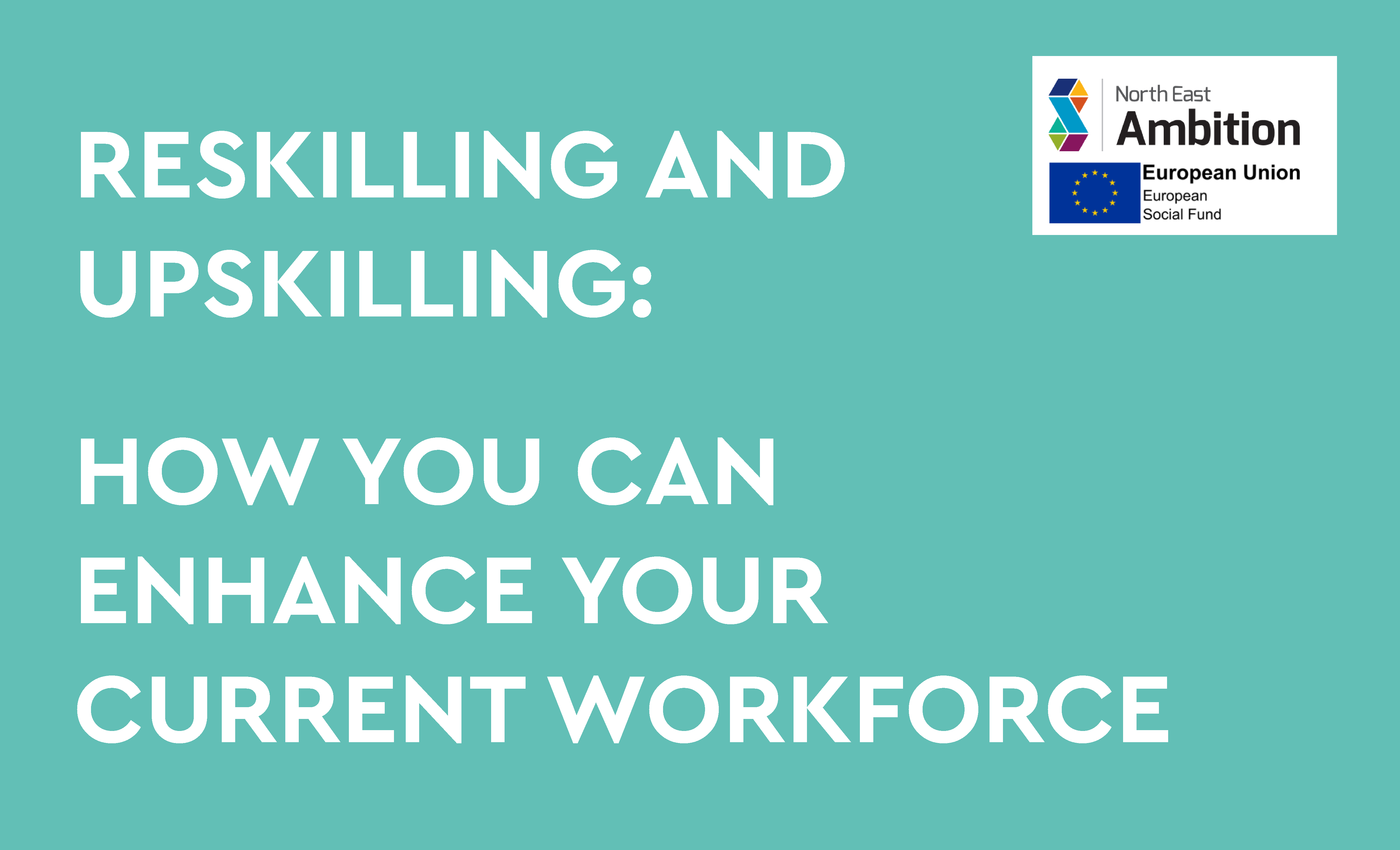Guest blog from North East Ambition
Do you want to maximise your businesses potential using your existing workforce? With top advice and current information, it can make all the difference to the future of an organisation. It is a minefield out there if you don’t know where to look, so we will touch on a couple of ideas to consider for your business and where to find this support.
Do you struggle with skills shortages in your business?
One solution is to carry out a Training Needs Analysis and Workforce Development Plan. This is a bespoke action plan that can help identify skills gaps within your business. The CIPD[1] describe workforce planning as ‘getting the right number of people with the right skills employed in the right place at the right time, at the right cost and on the right contract to deliver an organisation’s short and long-term objective.’
An opportunity to reassess priorities and review the skillset of your employees is instrumental to the future of your business. A plan will help you access your current workforce and map this against the skills you need now. It can also identify the relevant skills support programmes or training options that could include apprenticeships or specialised courses for staff to have the opportunity to upskill or reskill.
Reskilling and upskilling
What is the difference between reskilling and upskilling, and how important is it for businesses to consider these as an option? Reskilling refers to an employee learning a new set of skills that are not related to their current job. Upskilling is about an employee expanding their existing skills in a job they are doing now.
According to a McKinsey report – The economic case for reskilling in the UK[2] – in about 75% of cases, it pays for an organisation to reskill an employee. Whether in the form of upskilling or retraining either is seen as an economic opportunity for UK firms. The report also refers to the importance of workforce planning.
A separate report by CBI – Learning for life[3] – noted that 85% of skill gaps for the future UK economy are workplace skills such as digital and leadership. These in-demand skills could be supported through some form of reskilling and upskilling.
How satisfied are your employees?
Developing your current workforce can also be a big win for your staff. In the previously referenced McKinsey report, 94% of employees say they would stay at a company longer if it invested in their career development. This could also boost morale and so improve staff retention. Upskilling could help an employee master their current role, embrace the love of learning and even motivate top talent.
Where can I get support for my business?
If you would like advice on workforce planning, upskilling, skills and employment programmes, training courses, funding and incentives please book a free appointment with a Skills Facilitator, or come along to the Bridging the Gap event on 13th October – An event focussed on bridging the skills gap within ambitious North East SMEs and enabling them to put unparalleled growth plans into action.
[1] https://www.cipd.co.uk/knowledge/strategy/organisational-development/workforce-planning-factsheet#gref
[2] https://www.mckinsey.com/business-functions/people-and-organizational-performance/our-insights/the-economic-case-for-reskilling-in-the-uk-how-employers-can-thrive-by-boosting-workers-skills
[3] https://www.cbi.org.uk/media/5723/learning-for-life-report.pdf







